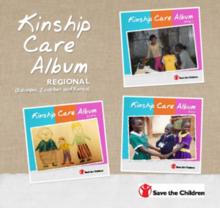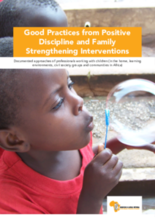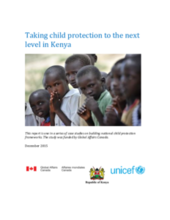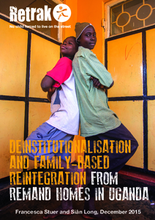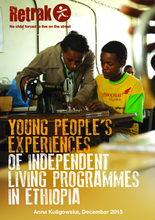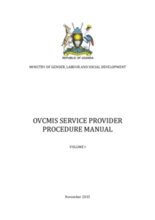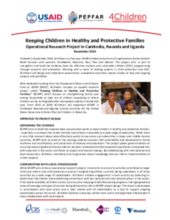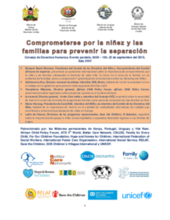Displaying 231 - 240 of 416
This Regional Kinship Care Album is a compilation of the 3 country albums (Kenya, Ethiopia and Zanzibar) bringing together information from children, young people and adults collected during the Kinship Care Research that took place in each of the three countries from late 2013 through 2014.
This document highlights examples of good practices in parenting and family strengthening interventions based on evaluations of programs and initiatives throughout Africa.
This chapter first traces the etymology of the definition of “orphan” and its attendant “crises.” Then, using examples from Guatemala and Uganda, the authors consider how the idea of an “orphan crisis” has traveled from development to charitable responses and what effects this has on local child protection systems.
The case study is part of a UNICEF global initiative, undertaken in collaboration with Global Affairs Canada to document national child protection frameworks in five core programming countries: Ghana, Indonesia, Kenya, Senegal and the United Republic of Tanzania.
This report looks at the adaptation of Retrak’s Family Reintegration Standard Operating Procedures in the context of children in temporary youth detention institutions, known as remand homes, in Uganda.
This study sought to inform improvements in service delivery of Retrak’s Independent Living programme by listening to and documenting the voices of participants.
This video from Child's i Foundation documents the story of Mercy from Redeemer House in Jinja, Uganda.
The OVCMIS is one of the key instruments for effecting implementation of the National Strategic Programme Plan of Interventions for orphans and other vulnerable children (NSPPI).
This two-page brief from USAID describes the “Keeping Children in Healthy and Protective Families” project, a project that is part of 4Children that “focuses on strengthening family care among households at high risk of children separating or where children can be reintegrated after having been placed in residential care.”
Este evento paralelo del Consejo de Derechos Humanos incluyó presentaciones en separación familiar en los contextos africanos, asiáticos, europeos, y latinoamericanos.

